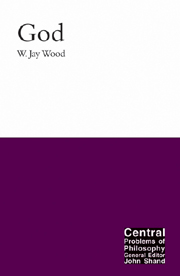Book contents
- Frontmatter
- Contents
- Introduction
- 1 Design arguments
- 2 Cosmological arguments
- 3 The ontological argument
- 4 The moral argument for God's existence
- 5 Religious experience and cumulative case arguments
- 6 Religious belief without evidence
- 7 The problem of suffering
- 8 The nature of God
- Conclusion
- Notes
- Bibliography
- Index
6 - Religious belief without evidence
- Frontmatter
- Contents
- Introduction
- 1 Design arguments
- 2 Cosmological arguments
- 3 The ontological argument
- 4 The moral argument for God's existence
- 5 Religious experience and cumulative case arguments
- 6 Religious belief without evidence
- 7 The problem of suffering
- 8 The nature of God
- Conclusion
- Notes
- Bibliography
- Index
Summary
We began this book by considering the evidentialist objection to religious belief. The objection, as you will recall, insists that all beliefs – with religious beliefs as no exception – must enjoy the support of adequate evidence if we are to believe them rationally. Most evidentialists insist that one not only have evidence, but also that one see how and to what degree one's evidence supports the target belief. In the light of this requirement, it is quite plain how the evidentialist's demand is congruent with the natural theologian's practice of forming arguments for God's existence, whose premises and strength of conclusion are evident. In this chapter, we consider two positions that, for differing reasons, do not attempt to meet the evidentialist demand, but reject it. Pascal is famous for thinking that, even if theism cannot be underwritten by so-called proofs for God's existence, belief in God is nevertheless rational on prudential grounds, because of the good ends religious belief brings about. Second, we shall explore a position most famously forwarded by Alvin Plantinga, referred to frequently as “Reformed epistemology”, stemming from the fact that he, and fellow Reformed epistemologists follow John Calvin and Martin Luther's rejection of natural theology. Belief in God, they argue, should be accepted as “properly basic”, without the need for argumentative support.
Pragmatic arguments
Pascal, to whom the reader has already been introduced, was no stranger to the tradition of natural theology.
- Type
- Chapter
- Information
- God , pp. 133 - 154Publisher: Acumen PublishingPrint publication year: 2010

